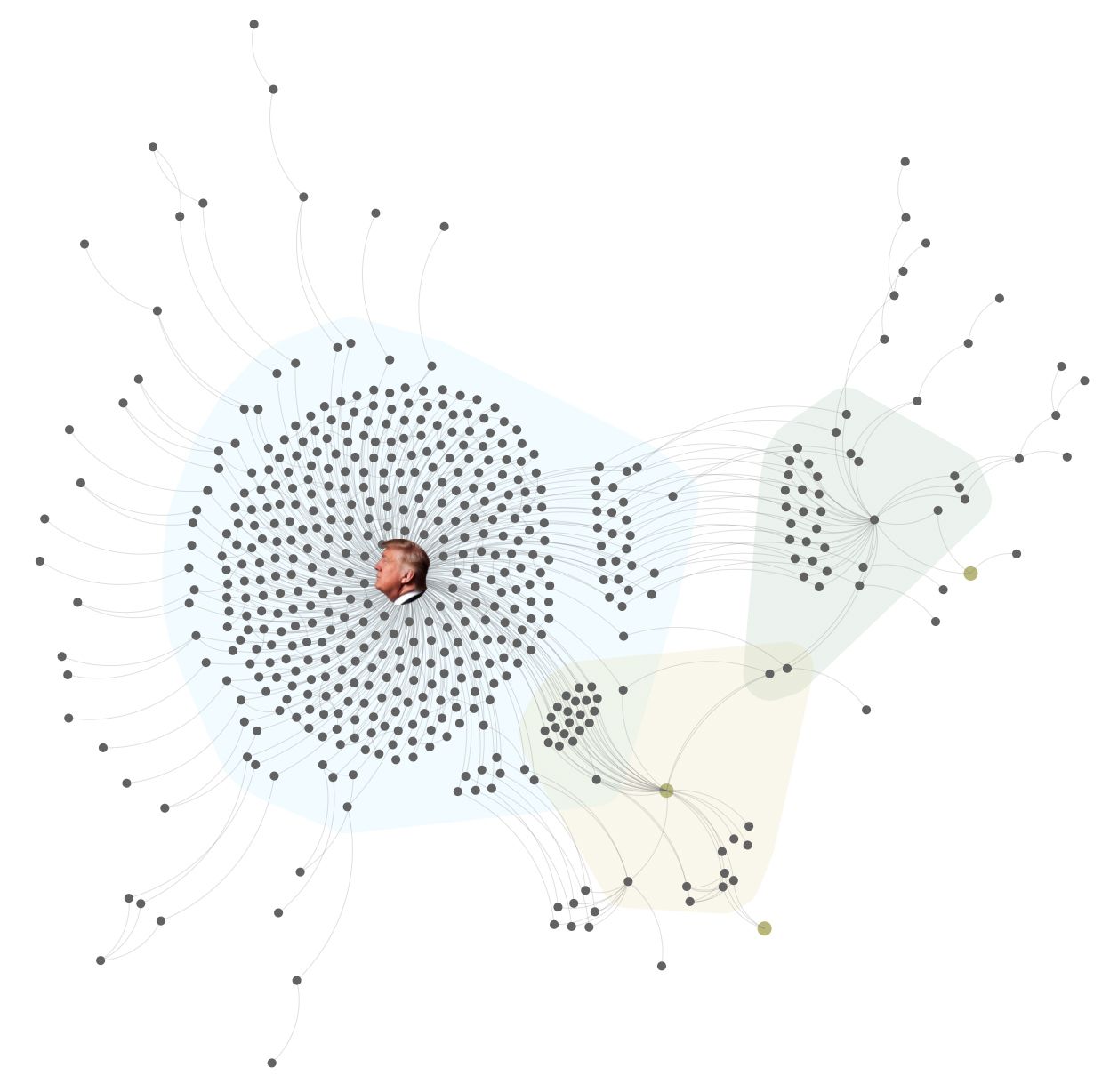Investigating Potential Conflicts Of Interest: Presidential Seals, Gem-Encrusted Watches, And Elite Functions

Table of Contents
The Ethics of Accepting Luxurious Gifts
Defining Conflicts of Interest
Conflicts of interest arise when a public official's personal interests—financial or otherwise—could improperly influence their official duties. Lavish gifts, particularly those from individuals or organizations with vested interests in government policy, create a clear potential for such conflicts.
- Examples of conflicts:
- Compromised decision-making in favor of the gift-giver.
- Biased policy creation benefiting the gift-giver's interests.
- The appearance of impropriety, even if no actual bias occurred, eroding public trust.
The difference between actual and perceived conflicts is crucial. Even if a gift doesn't directly influence a decision, the perception that it could severely damages public confidence. Maintaining impartiality and avoiding even the appearance of impropriety is paramount for upholding ethical standards in public service.
The Psychology of Gift-Giving
The psychology behind giving (and receiving) expensive gifts to those in power is complex. It's rarely purely altruistic. Expensive gifts are often strategic tools used to:
- Cultivate favor: A lavish gift can foster a sense of obligation or reciprocity.
- Influence policy: A gift can be a subtle bribe, designed to sway decisions in the giver's favor.
- Gain access: Exclusive gifts can open doors to otherwise inaccessible officials and information.
Subtle influences are particularly insidious. A seemingly innocuous gift can create a sense of indebtedness, subtly shaping future decisions without explicit coercion. Understanding these psychological dynamics is vital to addressing the problem of conflicts of interest stemming from gift-giving.
Presidential Seals and the Symbolism of Power
The Significance of the Presidential Seal
The Presidential Seal is a potent symbol of American authority, legitimacy, and the public trust placed in the office of the President. Its unauthorized use, particularly for personal gain, is a serious breach of ethics and potentially illegal.
- Representing authority: The seal embodies the power and prestige of the presidency.
- Legitimacy: Its use signifies official sanction and endorsement.
- Trust: The public trusts that the seal will not be misused to promote private interests.
Misusing or profiting from the Presidential Seal carries significant legal implications, potentially leading to criminal charges and severe reputational damage. Strict regulations are in place to protect its integrity and prevent its exploitation.
Gifts Bearing Presidential Imagery
Instances where gifts bearing presidential imagery were given to public officials raise ethical concerns. These gifts can blur the lines between personal and public interests, potentially leading to:
- Examples of controversial gifts: Items featuring the presidential seal, portraits, or other official imagery.
- Potential for personal gain: Reselling such gifts for profit could be seen as a direct violation of public trust.
- Improper influence: The gift's value and symbolism could be used to improperly influence decision-making.
Legal Frameworks and Accountability
Existing Gift Regulations
Various laws and regulations govern gifts to public officials, aiming to prevent conflicts of interest. However, loopholes and ambiguities exist, necessitating stronger enforcement and clearer guidelines.
- Examples of existing legislation: These vary widely by country and jurisdiction, but often include limits on gift values and mandatory disclosure requirements.
- International comparisons: Examining gift regulations in other countries can highlight best practices and areas for improvement.
Enforcement mechanisms, including investigations and penalties for violations, are crucial but often lack sufficient resources or independence. This weakness allows conflicts of interest to persist.
Transparency and Disclosure
Transparency in the disclosure of gifts is paramount. Stricter regulations are needed to ensure accountability and prevent conflicts of interest.
- Public access to information: Online databases of gifts received by public officials should be readily accessible to the public.
- Independent oversight bodies: Independent agencies should be tasked with investigating potential violations and enforcing regulations.
Enhanced transparency measures, coupled with robust enforcement, are essential to deter unethical conduct and restore public confidence in government.
Elite Functions and Potential for Undue Influence
Access and Influence
Participation in elite functions, often characterized by lavish gifts, provides avenues for undue influence. These events facilitate:
- Networking opportunities: Close interactions between public officials and influential individuals can lead to preferential treatment.
- Exclusive access to information: Private briefings and discussions can give certain individuals an unfair advantage.
The potential for quid pro quo arrangements – where gifts are exchanged for favorable policy decisions – is a significant concern. These exchanges undermine the fairness and impartiality of government decision-making.
The Role of Lobbying
Lavish gifts, elite functions, and lobbying efforts often intertwine, potentially corrupting the political process.
- Examples of lobbying scandals related to gifts: Numerous historical examples demonstrate the link between expensive gifts and lobbying success.
- Lobbying regulations intersection: Strengthening lobbying regulations to better address the issue of lavish gifts and undue influence is critical.
Conclusion
The acceptance of lavish gifts, the misuse of presidential seals, and participation in elite functions by public officials raise serious ethical concerns and create a potential for conflicts of interest. Transparency, accountability, and robust regulations are crucial in preventing these issues and restoring public trust. The subtle yet powerful influence of gifts necessitates a multi-faceted approach to tackling this complex problem.
Call to Action: We must demand greater transparency and stricter regulations regarding gifts and potential conflicts of interest. Stay informed about these issues and advocate for ethical conduct among public officials. Continue investigating potential conflicts of interest to ensure government accountability and protect the integrity of our democratic institutions. Let's work together to strengthen ethical guidelines and prevent the abuse of power through lavish gifts and undue influence.

Featured Posts
-
 Baffie Vs Ardisson Debat Houleux Sur Le Sexisme Et Le Machisme
May 25, 2025
Baffie Vs Ardisson Debat Houleux Sur Le Sexisme Et Le Machisme
May 25, 2025 -
 Naomi Campbells Potential Met Gala 2025 Absence Sparks Speculation
May 25, 2025
Naomi Campbells Potential Met Gala 2025 Absence Sparks Speculation
May 25, 2025 -
 Southeast Pa Coastal Flood Advisory Issued For Wednesday
May 25, 2025
Southeast Pa Coastal Flood Advisory Issued For Wednesday
May 25, 2025 -
 What Is A Flash Flood Essential Information On Flood Warnings And Alerts
May 25, 2025
What Is A Flash Flood Essential Information On Flood Warnings And Alerts
May 25, 2025 -
 Hells Angels Pay Tribute South Shields Biker Remembered
May 25, 2025
Hells Angels Pay Tribute South Shields Biker Remembered
May 25, 2025
